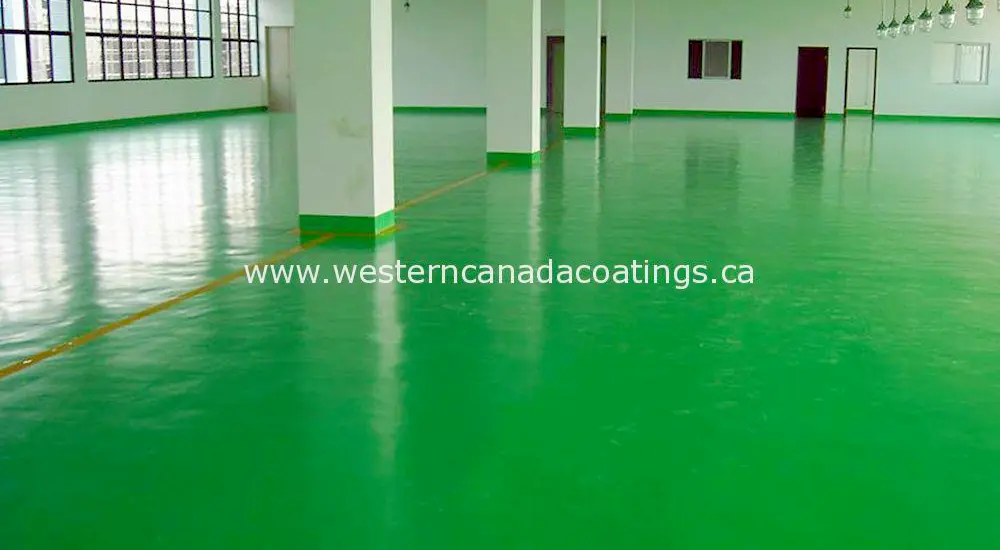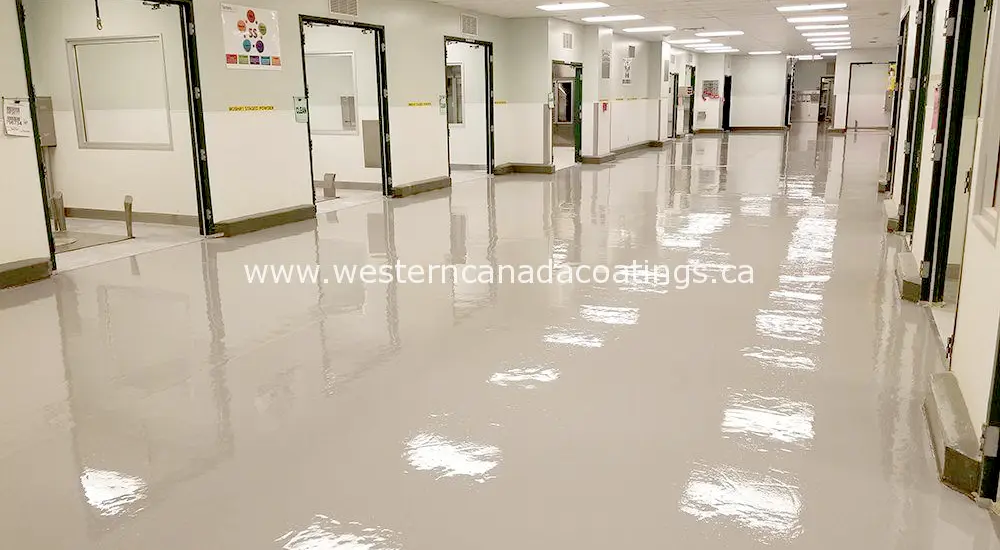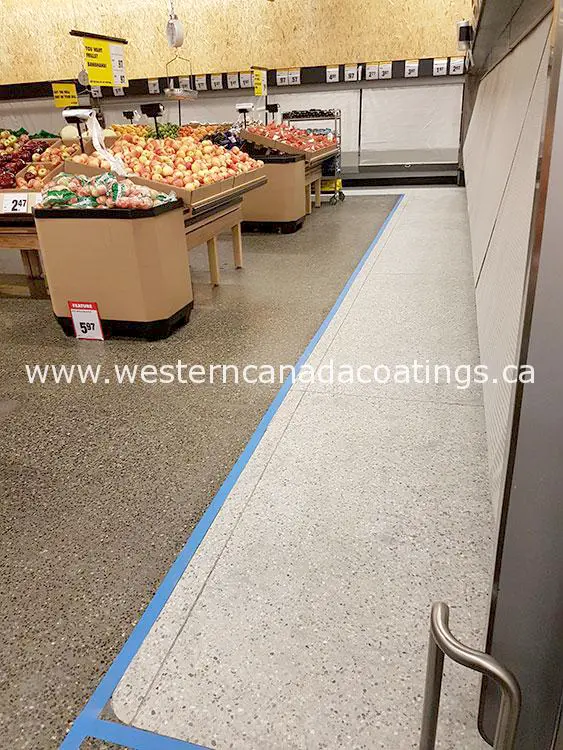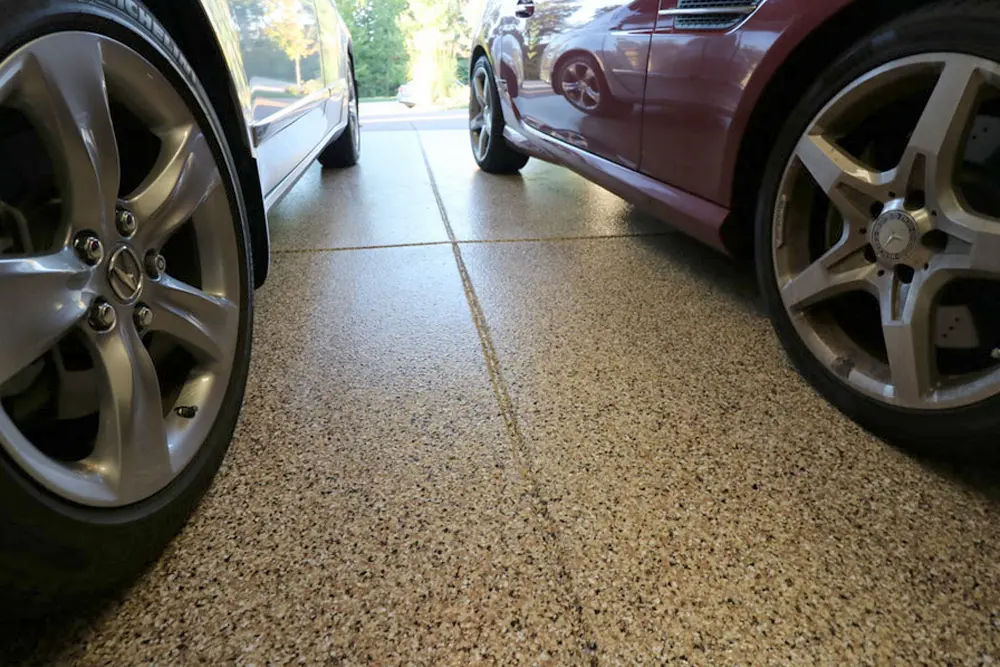What is Epoxy?
Epoxy is a coating compound consisting of two distinct elements: an epoxy resin and a polyamine hardener (also known as a catalyst). When mixed, the resin and hardener engage in a chemical reaction that creates cross-linking of the elements as it cures. When the epoxy coating is fully cured, the resulting product is a durable, rigid plastic coating with numerous desirable mechanical properties. The resin component is usually light, sometimes almost clear-colored, and almost odor-free. Hardeners are usually dark and have a slight odor.
When these two components are mixed, they will chemically bond together, and once the chemical reaction has finished, they will form a strong and rigid plastic material.
Read More About How to Mix Concrete

Why Epoxy Coatings
Epoxy coatings are used because of their outstanding chemical resistance, durability, low porosity, and strong bond strength. Epoxy coatings can be formulated to be field applied, brushed-on, rolled-on, or troweled-on.
Epoxies are known for their excellent adhesion, chemical and heat resistance, good-to-excellent mechanical properties, and very good electrical insulating properties.
What are epoxies used for? Applications of epoxy-based materials are extensive and include coatings, adhesives, and composite materials like carbon fiber and glass-reinforced plastic (although polyester, vinyl ester, and other thermosetting resins are also used for glass-reinforced plastic). There are even special epoxy coating formulations that offer increased chemical resistance, increased temperature resistance, and the ability to be applied underwater.
Is Epoxy Flooring Scratch Resistant?
The amount of epoxy will affect how scratch-resistant an epoxy floor coating can truly be. The thicker epoxy coating uses a mix of resin and hardener that prevents scratches when something heavy is dropped on the surface. Epoxy paint with a lower epoxy mix may still show scratches given the right amount of force or sharpness of the object.
Compared to tile, wood, or other flooring covers, an epoxy floor coating is considered the most scratch-resistant. High traffic areas, outdoor spaces, decks, workspaces, and areas with lots of moisture like pool floors or saunas are excellent candidates for epoxy floor coatings because of their scratch, moisture, and abrasion resistance.
Read More About What Can Cause Epoxy Flooring Failures

Is Epoxy Flooring Cheaper Than Tile?
The benefits of an epoxy floor coating outweigh tile as well, epoxy paint is tougher, stronger, and more durable than a standard tile. While an epoxy concrete floor is hard to damage, tiles can eventually warp or break. The only downside to epoxy coating is that it may yellow over time depending on how clear the resin is and how much exposure to the sun the floor experiences. This mainly affects clear and off-white epoxy coatings, not epoxy paint.
Types of Epoxy Surface Coating
There are a variety of applications for epoxy-based materials on the market, including coatings, adhesives, and the creation of composite materials. Those used for surface coatings are known for their good mechanical properties, electrical insulating properties, adhesion, and chemical- and heat resistance.
The most common types of epoxy resins include bisphenol A, bisphenol F, and phenolic novolac. Hardeners, or co-reactors, used with epoxy resins include polyamide, amidoamine, phenalkamine, aliphatic amine adducts, cycloaliphatic amine, aromatic amine, an aliphatic amine. The best resin and co-reactant combination depend on the purpose of the application and the performance requirements sought. If you seek a coating with high chemical and corrosion resistance, for instance, you may use a phenolic novolac resin with a polyamide co-reactant.
Epoxy Coatings Considerations
Epoxy coatings require specific environmental conditions to ensure the success of their application, as well as the proper preparation of the respective surfaces. When applying an epoxy coating to steel, for instance, you may need to remove the thin corrosion layer that naturally forms on the surface. Methods of cleaning surfaces include the use of chemicals or blasting products.
After you prepare and clean a surface, it becomes vulnerable to environmental contamination. When working with steel, for example, it takes as little as 30 minutes for flash rust to form. The longer you wait to apply an epoxy surface coating, the shorter the expected field longevity becomes. For this reason, manufacturers provide specific instructions regarding how quickly to apply the first coating and the ideal environmental conditions


